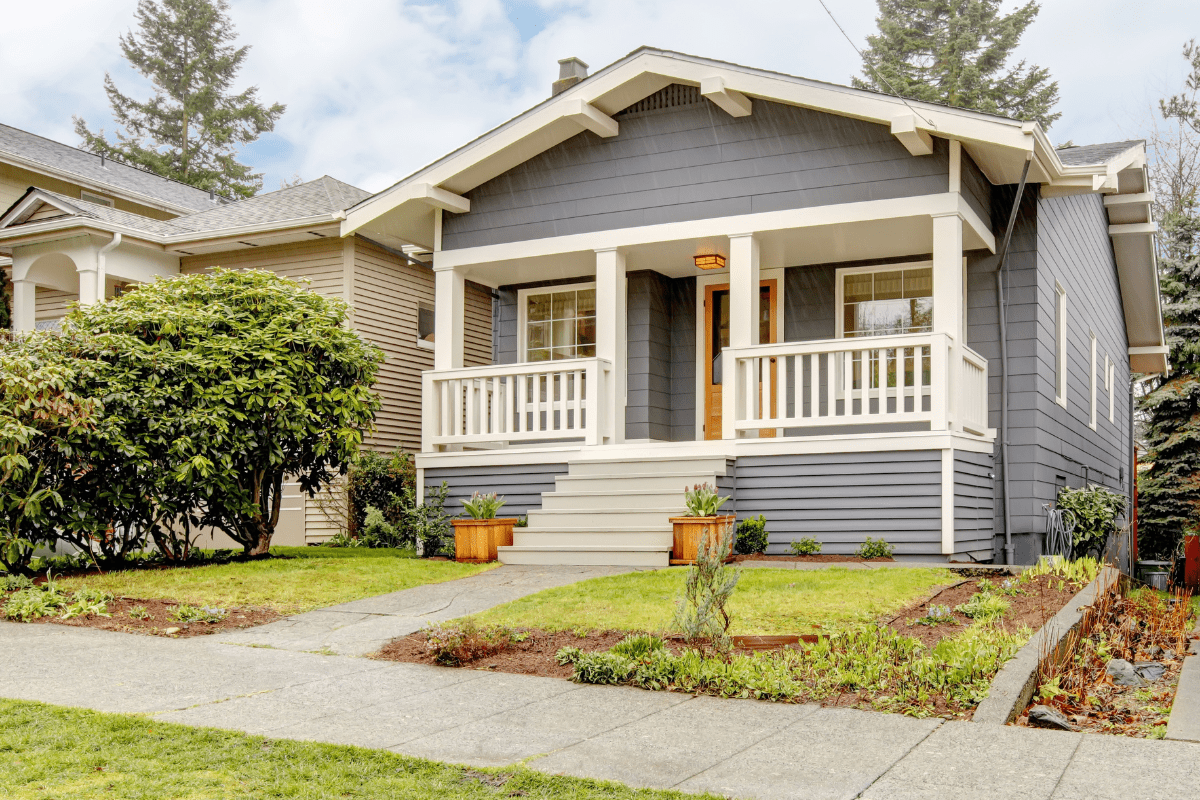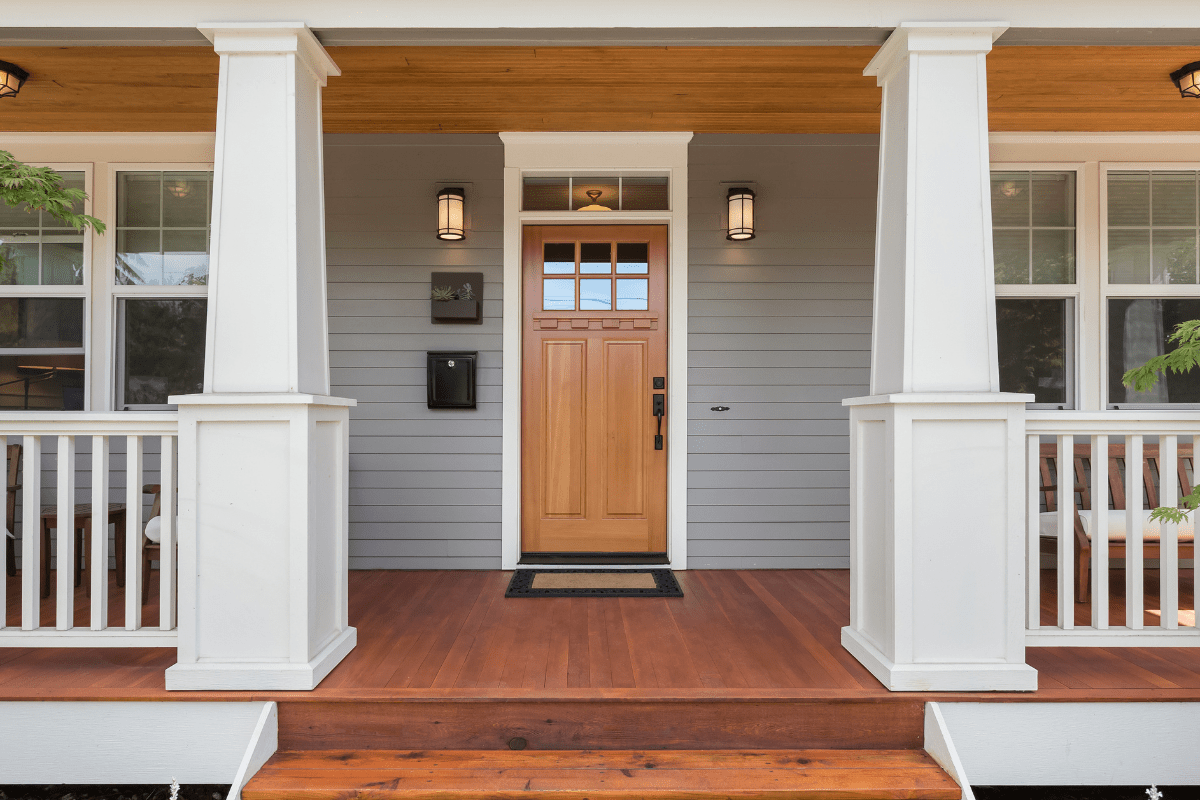Living in Washington state means navigating a unique tax landscape…no income tax, but some of the highest sales and specialty taxes in the nation. Whether you're a new resident shocked by your first car tab renewal or a longtime Washingtonian wondering about that surprise use tax bill, understanding the state's tax system can save you thousands annually.
Sales and use taxes shape daily spending
Washington's sales tax starts at a state rate of 6.5%, unchanged since 1983, but local additions push the combined rate as high as 10.4% in some areas. Seattle residents pay 10.35%, the highest among major U.S. cities, following King County's April 2024 addition of a 0.1% cultural funding tax. Tacoma follows closely at 10.3%, while Spokane residents enjoy a relatively modest 9.0% rate.
Unlike many states, Washington taxes most goods while exempting unprepared groceries and prescription medications. That morning latte costs $3.31 with tax in Seattle, while clothing, electronics, and prepared foods all face the full rate. Digital products and services also trigger sales tax, catching many consumers by surprise when downloading software or streaming content.
The use tax trap nobody talks about
Here's where things get interesting…and potentially expensive. Washington's use tax is essentially the "gotcha" companion to sales tax, applying whenever you purchase goods outside Washington without paying the full local tax rate.
Picture this: You drive to Portland for some tax-free furniture shopping. Congratulations, you've just created a use tax obligation! Those online purchases from sellers who don't collect Washington tax? Same deal. As one Seattle CPA told me, "Use tax on out-of-state purchases is the most common tax violation we see…clients consistently fail to report these obligations."
The reality? Individual compliance historically runs somewhere between "what's use tax?" and "I'll get right on that." But businesses face real audit risk here, especially with larger purchases that leave paper trails.
Property taxes follow their own rules
Property taxes in Washington follow a unique "budget-based" system where rates adjust to generate only the revenue taxing districts request. It's actually kind of clever, if you're into that sort of thing.
Effective rates range from 0.85% in King County to 1.02% in Pierce County, translating to approximately $4,350 annually on a $500,000 home in Seattle versus $5,000 in Tacoma. The state constitution limits regular levy increases to 1% annually or the inflation rate, whichever is lower, though voter-approved special levies for schools and transportation bypass this cap. Because of course they do.
Senior exemptions most people miss
Here's a secret that could save grandma thousands: Senior citizens and disabled residents can access significant property tax relief through exemption programs many overlook.
The qualification thresholds vary by county:
- King County: $84,000 income limit
- Pierce County: $64,000 income limit
- Age requirement: 61 or older
- Property values freeze at qualification
- Deferral programs available too
The state also offers deferral programs allowing eligible seniors to postpone payments with 5% simple interest until the property sells. Not exactly free money, but it beats eating cat food to pay property taxes.
The real estate surprise at closing
Real estate transactions trigger Washington's graduated excise tax (REET), and boy does it escalate quickly. The rates climb from 1.10% on sales under $525,000 to 3.00% on properties exceeding $3.025 million. A typical $800,000 home sale generates approximately $11,295 in combined state and local REET.
While sellers typically pay this tax, savvy buyers factor it into negotiations, especially in competitive markets. Nothing says "welcome to homeownership" quite like a five-figure tax bill at closing.
Transportation taxes hit hard everywhere
Washington motorists face the nation's third-highest gas tax at 55.4 cents per gallon as of July 2025, following a 6-cent increase…the first since 2016. Combined with federal taxes and Climate Commitment Act impacts, drivers pay approximately $1.17 in taxes per gallon at the pump.
This generates over $1.3 billion annually for road construction, ferry operations, and transportation infrastructure. That's a lot of orange cones and ferry boats.
Vehicle registration: The annual surprise
Vehicle registration brings multiple surprises, particularly for Puget Sound area residents. The Regional Transit Authority tax adds 1.1% of a vehicle's depreciated value annually for those in King, Pierce, and Snohomish counties within the Sound Transit district.
Let me break this down with real numbers that will make you cry:
- Three-year-old $30,000 car: ~$228 RTA tax
- Total annual registration: Often near $345
- That $50,000 truck? Over $500 annually
The Sound Transit taxes consistently rank as the top surprise for relocating executives. One tax specialist noted that many don't budget for these costs, leading to some colorful language at the DMV.
Electric vehicle owners face an additional $225 in annual fees, a "road use" charge offsetting lost gas tax revenue that often negates expected savings. Hybrid owners pay a reduced $75 transportation electrification fee. Heavy pickups over 6,000 pounds enjoy an exemption many owners discover only after years of payments. Whoops.
Sin taxes lead the nation
Washington's "sin taxes" on alcohol, tobacco, and marijuana generate substantial revenue while ranking among the nation's highest. Apparently, we really don't want you to have too much fun here.
Alcohol taxes that drive border runs
Spirits face a combined 20.5% sales tax plus $3.77 per liter, making Washington's $36.55 per gallon the steepest liquor tax nationally. A $30 bottle of vodka rings up near $39 after taxes, explaining why border-state liquor stores see steady Washington traffic.
The breakdown hurts to look at:
- Spirits: $36.55 per gallon
- Wine: $0.87 per gallon
- Beer: $0.26 per gallon
- Border store parking lots: Packed
Cannabis taxation hits hard
Marijuana taxation takes a different approach with a flat 37% excise tax…the highest among states with legal cannabis. A $25 product costs $36.83 after excise and sales taxes in Seattle, though qualified medical patients gained exemption from the excise portion in 2024.
Cannabis tax revenue tells an interesting story. It peaked at $555 million in 2021 before declining to $455 million in 2024 as prices dropped and the market matured. Turns out even stoners have price sensitivity.
Cigarette taxes add $3.025 per pack, while vapor products face a volume-based tax of 27 cents per milliliter for small containers. The message is clear: Washington wants you to quit everything fun.
Estate planning gets complicated
Washington's estate tax catches many families unprepared, with a $3 million exemption threshold far below the federal $13.99 million level. The July 2025 increase from $2.193 million provides some relief, but still…ouch.
The new graduated rate structure tops out at 35% for estates over $9 million, creating the nation's highest state estate tax rate. Unlike federal law, Washington offers no portability between spouses, meaning poor planning can waste one spouse's entire exemption.
The million-dollar mistake
Estate planning attorneys consistently cite this non-portability as the most expensive mistake they encounter. As one Seattle attorney explained, "Couples with $5 million in assets who leave everything to the surviving spouse at first death waste the first spouse's $3 million exemption."
Key planning considerations include:
- Proper trust structures essential
- Lifetime gifting strategies matter
- Out-of-state property counts too
- Professional help worth the cost
Business taxes defy logic
Washington's Business & Occupation (B&O) tax confounds newcomers with its gross receipts structure…no deductions for expenses, materials, or labor costs. Yes, you read that right. Gross receipts.
Current rates vary from 0.471% for retailers to 2.1% for large service businesses, with major increases scheduled for 2025-2027. A consulting firm grossing $200,000 pays B&O tax on the full amount regardless of expenses, catching many entrepreneurs who assume profit-based taxation.
Rate changes coming fast
Recent legislation significantly expanded the tax burden on larger businesses. Service companies exceeding $5 million in revenue face a jump from 1.75% to 2.1% in October 2025, while most other classifications increase to 0.5% in January 2027.
Technology giants face new surcharges, with advanced computing businesses seeing rates jump from 1.22% to 7.5% on gross income. Small businesses receive credits offsetting up to $841 annually, providing minimal relief for startups and sole proprietors.
Employment tax complexity
Employment taxes add another layer of fun to running a business in Washington:
- Paid Family Leave: 0.92% premium
- WA Cares: 0.58% (no cap!)
- Workers' comp: Industry-specific rates
- Unemployment: 0.27% to 6.02%
The WA Cares long-term care tax deserves special mention for taking 0.58% from all wages without a cap. That's right, no maximum. The more you make, the more you pay, forever.
Avoiding costly surprises
The most expensive tax mistakes in Washington often stem from misunderstanding rather than intentional avoidance. Let's fix that.
Use tax tops the list, with countless residents unknowingly violating the law through Oregon shopping trips or online purchases. Property owners miss appeal deadlines despite 25% of homes being over-assessed, costing an average of $1,346 annually in excess taxes.
Business owners sometimes separately itemize B&O tax on customer invoices…explicitly prohibited by state Supreme Court ruling…triggering audits and penalties. Don't be that person.
Expert survival tips
CPAs and tax professionals offer these recommendations for staying compliant and minimizing your burden:
Track all out-of-state purchases for annual use tax reporting. Yes, even that Portland IKEA run. Appeal property assessments whenever comparable sales suggest overvaluation. The county assessor websites make this easier than you'd think.
For estate planning, utilize both spouses' exemptions through proper trust structures. It's complicated, but losing $3 million in exemptions is more complicated. Business owners should verify B&O tax classification annually and never, ever itemize it on invoices.
The Washington Department of Revenue provides calculators for most tax types, while the Washington Society of CPAs offers referrals to qualified professionals. Free tax assistance through VITA serves lower-income residents who qualify.
The bottom line
Understanding Washington's tax landscape requires recognizing its fundamental trade-offs: no income tax but high consumption taxes, modest property tax rates but substantial vehicle fees, business-friendly structures but gross receipts taxation.
By grasping these nuances and planning accordingly, residents can minimize surprises while taking advantage of available exemptions and credits. Whether budgeting for that Seattle home purchase or launching a Spokane startup, knowledge of these tax obligations proves invaluable for financial success in the Evergreen State.
Sure, our tax system might seem designed by someone with a twisted sense of humor, but at least we don't have income tax. That's something, right?





